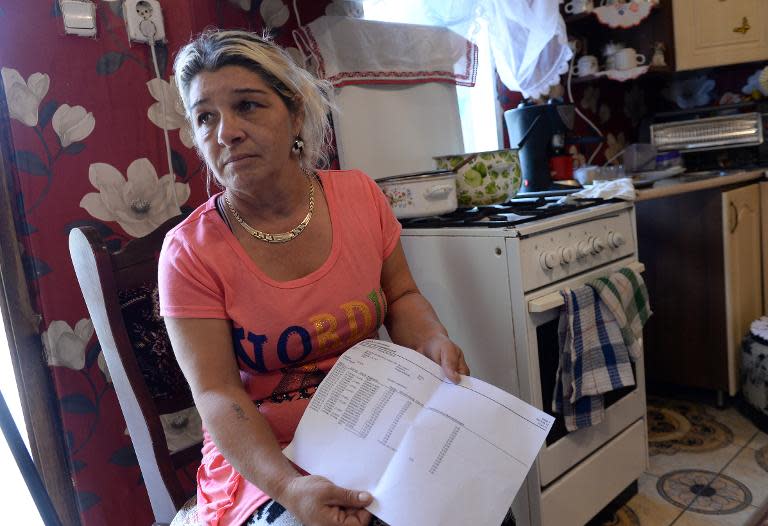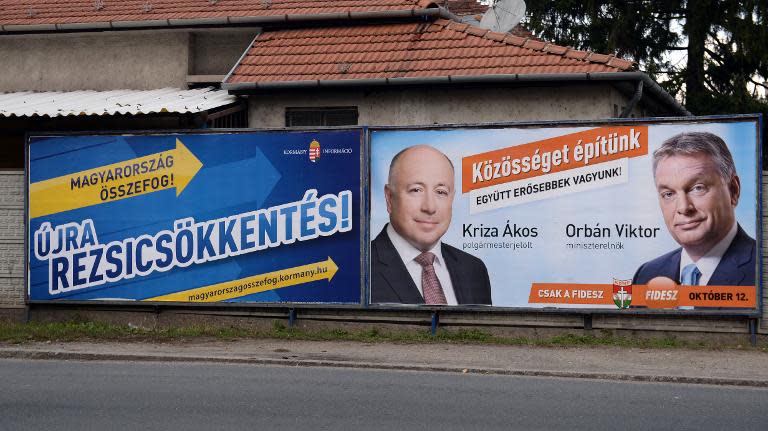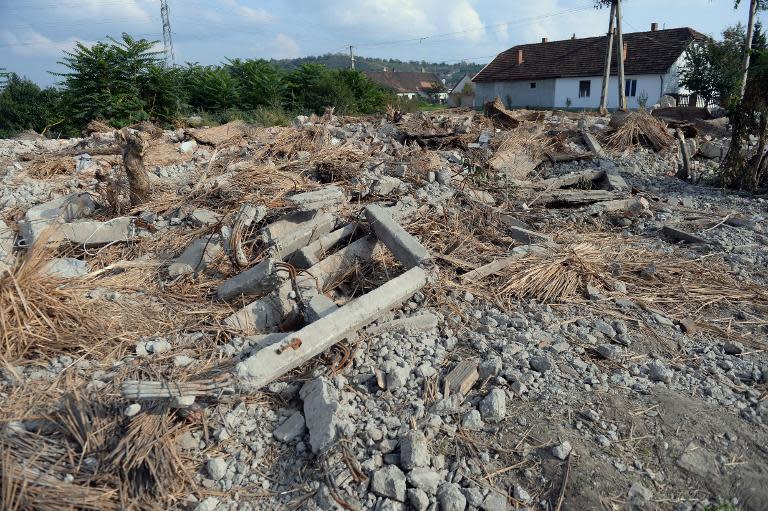Roma 'slums' face demolition in Orban's Hungary
With bulldozers at their doorstep, beginning to tear down their homes, it is hard to imagine life could get worse for the Roma of Miskolc, Hungary's impoverished third-largest city. But with the far-right Jobbik party possibly about to win the Miskolc mayorship in local elections on Sunday, it could. In May, the city council -– which, like Hungary's parliament, is run by Prime Minister Viktor Orban's right-wing Fidesz –- voted to demolish 13 areas inhabited predominantly by Miskolc's 20,000-strong Roma, or Gypsy, community. The wrecking machinery arrived in August. So far only around a dozen homes have been razed -- but this is just the start. "We have nowhere to go, we will be left homeless," Eva Molnar, a 50-year-old Roma whose respiratory problems mean she can't work, told AFP as she clutched an eviction letter giving her until October 20 to vacate her home. The area where she lives, squeezed between a derelict communist-era metalworks and a football stadium slated for an upgrade, is quiet, since many of her neighbours have already left. "They'll not be happy until we're all gone," Molnar said. The municipality says Miskolc, home to 168,000 people, should be made more "liveable" and rid itself of slums that are "unsuitable for normal life". One Fidesz official called the Roma areas "hotbeds of crime". Many local residents support the move. "About time," one shopper at a bus stop told AFP. "Slums have no place in Miskolc." The mayor claims that 35,000 signatures have been collected in support of the demolitions. "The Roma have to leave Miskolc as around 70-80 percent of Hungarian society simply doesn't not want to see them or have anything to do with them," Mihaly Simon of the Hungarian Civil Liberties Union rights group told AFP. - Nowhere to go - Four years after Orban was elected, and despite his promises to improve their misery, the European Union member state's Roma trail in practically every indicator from living standards to health, as they do throughout eastern and central Europe. Under Orban, 51, who has been accused at home and abroad of eroding democracy, many Roma -- who comprise eight to nine percent of Hungary's 10 million population -- have been forced into "workfare" schemes, doing menial work in order to continue receiving welfare payments. But not all of the properties in Miskolc are tumbledown shacks or Hungarian versions of the favelas of Brazil. Many are one-storey houses -- lots of them crumbling, but some of them well-maintained. And where Miskolc's Roma are supposed to go is unclear. Several nearby villages have warned they have no money to provide work or benefits to any newcomers, and are collecting petitions opposing the "export" of the poor. "It's barbaric, there were no impact studies for this, nobody spoke to the Gypsies," Gabor Varadi, head of a local Roma political grouping, told AFP. "The council is spending billions of forints [millions of euros (dollars)]... on the new football stadium instead of social housing for poor people," he said. - 'Deviants' - A few of those being evicted in Miskolc -- those with indefinite-term leases -- are being offered money or flats elsewhere, but Jobbik's candidate in Sunday's election, Peter Jakab, says he will scrap even this if elected. Jobbik, which won 21 percent of the vote in general elections in April, sparking alarm throughout Europe, says it will flatten the houses immediately and force the Roma to cover the demolition costs. "They knew when they signed the lease that it would expire one day, that the owner might kick them out," Jakab told AFP. Jobbik, which has sought to soften its image in recent years, still says it wants to stop "Gypsy crime", create ghettos for Roma "deviants" and create a rural "gendarmerie" of the sort last seen in Hungary before World War II. The local elections are expected to see Orban's party remain firmly in control. But nationwide, Jobbik is forecast to more than double its control of municipalities, from 12 currently to around 30.




